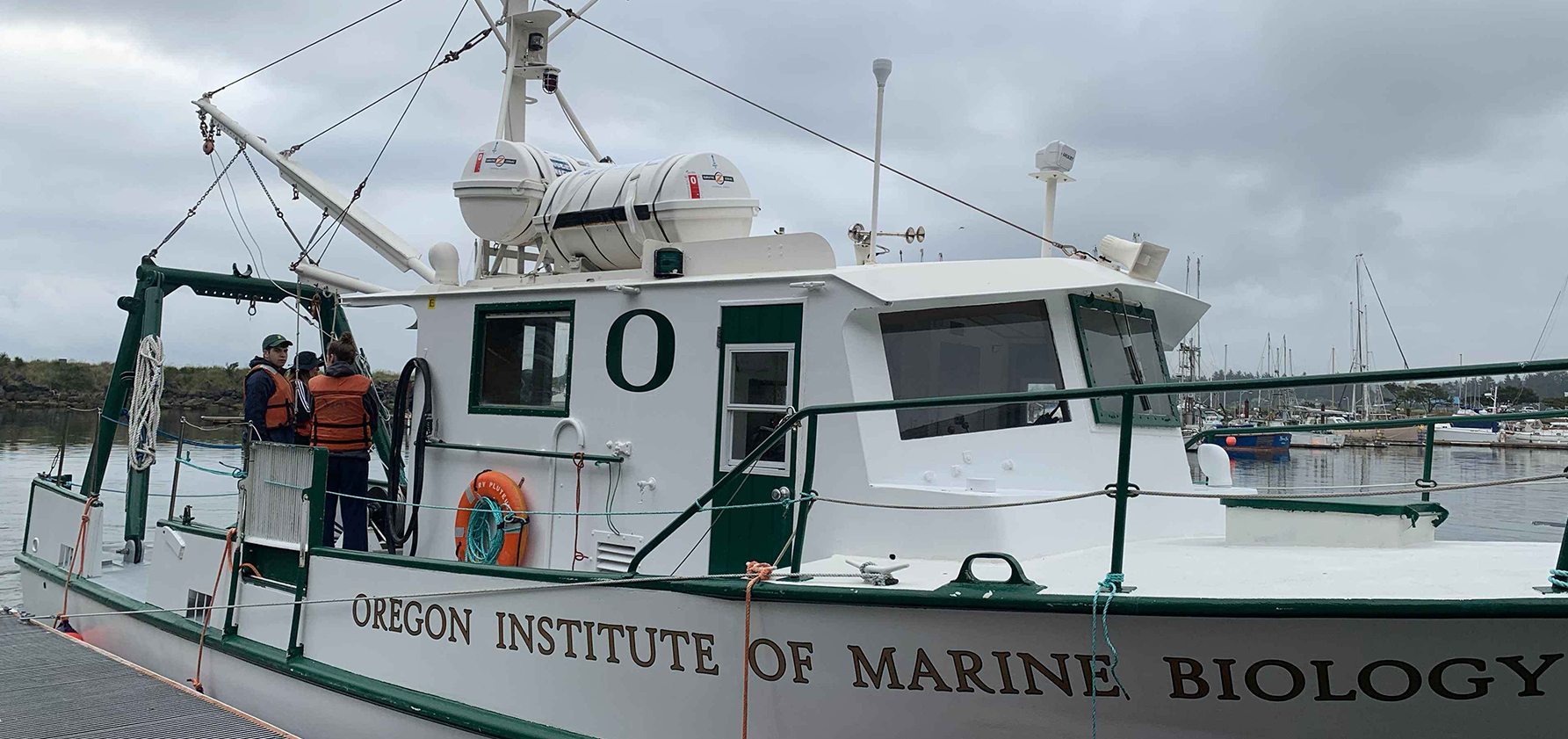
The final day in Oregon had come upon us. We decided to take one last trip before leaving for the airport in the afternoon. A man by the name of Knute, who has been a sailor for about 45 years, captained our ship out to sea in search of very small organisms as well as sand dollars. Many of us have some form of motion sickness, myself included. As soon as we left Coos Bay and reached the Pacific Ocean, that was when the rocking of the ocean’s waves really hit most of us. As we started into open water, we threw a smaller towing net into the water to obtain phytoplankton and other very small organisms. Among these was an arthropod called a copepod. These creatures are related to shrimp and feed on the phytoplankton. They are also the most abundant consumer in the ocean. There was also an abundance of diatoms, which are microscopic algae. Then, as we ventured into deeper water with Siobhan captaining the boat, we brought out the much larger dredge net.
This dredge net was attached to a hydraulic mechanism with a steel cable in order for the net to be dropped down about 50 feet to the bottom of the ocean. Our first drop of the net ended with a buoy wrapped around it, so we ended up with a few sand dollars and some very small crabs. The cord needed to be guided as it was rolled up, and I ended up volunteering for the job. Although I was seasick, I was able to successfully guide the cord. The last cast of the net ended with the jackpot of sand dollars. It was as if we won the lottery when they were pulled out of the water! On the way back, the seasickness turned for the worse. I proceeded to sit down in the middle of the boat with a few of my other classmates and took a nap. Finally, my stomach had settled after napping and reaching the less choppy Coos Bay. Even though many of us had become sick on the trip, the boat trip was very fun because of the hundreds of sand dollars we caught (they were released back into the ocean). Then, we packed up our bags and headed to the airport.
As I sat in the airport waiting to board our flight back to Newark, I pondered about my experiences in Oregon with the rest of my class. I knew a few of my classmates before the trip, but not too well. This trip changed everything; we all became a family. We grew closer through our trips to Davey Jones’ Locker (a little convenience store), by watching a few ocean-based movies (especially Deep Blue Sea), and through the helping of others in the field. We all have different backgrounds and personalities, but two things really facilitated our cohesion. These two things were our humor and our love to just find new creatures in the field. The one creature I really would have liked to take home as a pet was a nudibranch, more commonly known as a sea slug. This was a class favorite, and I am sure many of my classmates would have wanted to take one home as well. Unfortunately, TSA would definitely not have let us get through with more than three ounces of salt water and a sea slug. Now it may seem that this trip was just for fun, but I learned probably a full semester’s worth of information in just two weeks. One may ask, “How is that possible?” Well, it was very possible because when we would step into the field sites, there were so many species to be found. The hands-on experience and Dr. Lord’s guidance and teaching while in the field was what ensured that a semester’s worth of information was learned in two weeks. Along with the worthwhile knowledge, I became a better hiker and climber through this experience. I was never much of an outdoorsman, but this trip might have just changed my mind. Overall, the experience was amazing and possibly even once in a lifetime. It provided me with an experience in a field of biology I have never studied before, and I am very grateful for the opportunity. I want to thank Dr. Lord for offering this experience to me, as well as my fellow classmates. This trip has provided me with new friendships and even the possibility of attending medical school on the west coast. Goodbye Oregon, I hope to see you soon!